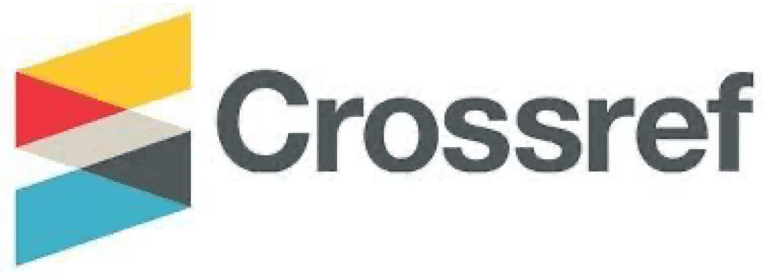MODIFIKASI PERMUKAAN KAYU PINUS MENGGUNAKAN METODE FINISHING TRADISIONAL JEPANG – YAKISUGI PADA BEBERAPA LEVEL PENGARANGAN
DOI:
https://doi.org/10.24259/perennial.v19i1.26319Keywords:
heat treatment modification, pine wood, wood charring, yakisugiAbstract
The yakisugi is a japan method on wood finishing that enhances an esthetic, dimension stability and durability. Yakisugi methode traditionally carried out by tying three boards together to form an elongated triangle and then burning until black charcoal is evenly created on the wood surface. Thes method has not been extensively researched or industrialized in Indonesia. Therefore, this study aims to evaluate the quality of yakisugi finishing on pine wood with parameters such as the length of the burning process (20 seconds and 30 seconds on a 70 cm2 area). The results showed that the pine wood burning process produced higher dimensional stability than pine without burning treatment, with ASE values reaching about 56% at a burning time of 30''. Meanwhile, in the mechanical properties test, the yakisugi method provides lower values of MOE and MOR than the control sample—the change in wood properties to become more brittle after combustion is the main reason for this phenomenon. The combustion characteristics show that the combustion duration does not give a different color change in the test sample after the charcoal cleaning process. However, the thickness of the charcoal produced at 30" showed a higher value of 4.5 mm.
References
American Standard for Testing and Materials. (1996). ASTM D 143-05. Standard methods of testing small clear specimens of timber. In: Annual book of ASTM standard. New York (NY): American Standard Institution; p. 1–31.
Buksans, E., Laiveniece, L., & Lubinskis, V. (2021). Solid wood surface modification by charring and its impact on reaction to fire performance. Engineering for Rural Development, 20, 899–905. https://doi.org/10.22616/ERDev.2021.20.TF203
Darmawan, W., Nandika, D., Noviyanti, E., Alipraja, I., Lumongga, D., Gardner, D., & Gérardin, P. (2018). Wettability and bonding quality of exterior coatings on jabon and sengon wood surfaces. Journal of Coatings Technology and Research, 15(1), 95–104. https://doi.org/10.1007/s11998-017-9954-1
Ebner, D. H., Barbu, M. C., Klaushofer, J., & Čermák, P. (2021). Surface modification of spruce and fir sawn-timber by charring in the traditional japanese method—yakisugi. Polymers, 13(10). https://doi.org/10.3390/polym13101662
Esteves, B. M., & Pereira, H. M. (2008). Wood modification by heat treatment: A review. BioResources, 4(1), 370–404. https://doi.org/10.15376/biores.4.1.370-404
Gérardin, P., Petrič, M., Petrissans, M., Lambert, J., & Ehrhrardt, J. J. (2007). Evolution of wood surface free energy after heat treatment. Polymer Degradation and Stability, 92(4), 653–657. https://doi.org/10.1016/j.polymdegradstab.2007.01.016
Hasburgh, L. E., Zelinka, S. L., Bishell, A. B., & Kirker, G. T. (2021). Durability and fire performance of charred wood siding (Shou sugi ban). Forests, 12(9). https://doi.org/10.3390/f12091262
Jirouš-Rajković, V., & Miklečić, J. (2021). Enhancing Weathering Resistance of Wood—A Review. Polymers, 13(12), 1980. https://doi.org/10.3390/polym13121980
Korkut, S., & Hiziroglu, S. (2009). Effect of heat treatment on mechanical properties of hazelnut wood (Corylus colurna L.). Materials and Design, 30(5), 1853–1858. https://doi.org/10.1016/j.matdes.2008.07.009
Kymäläinen, M., Hautamäki, S., Lillqvist, K., Segerholm, K., & Rautkari, L. (2017). Surface modification of solid wood by charring. Journal of Materials Science, 52(10), 6111–6119. https://doi.org/10.1007/s10853-017-0850-y
Kymäläinen, M., Turunen, H., & Rautkari, L. (2020a). Effect of weathering on surface functional groups of charred norway spruce cladding panels. Forests, 11(12), 1–9. https://doi.org/10.3390/f11121373
Machová, D., Oberle, A., Zárybnická, L., Dohnal, J., Šeda, V., Dömény, J., Vacenovská, V., Kloiber, M., Pěnčík, J., Tippner, J., & Čermák, P. (2021). Surface characteristics of one-sided charred beech wood. Polymers, 13(10). https://doi.org/10.3390/polym13101551
Martha, R., Basri, E., Setiono, L., Batubara, I., Rahayu, I. S., Gérardin, P., & Darmawan, W. (2021). The effect of heat treatment on the characteristics of the short rotation teak. International Wood Products Journal, 12(3), 218–227. https://doi.org/10.1080/20426445.2021.1953723
Mburu, F.; Dumarcay, S.; Bocquet, J.F.; Petrissans, M.; Gérardin, P. 2008. Effect of chemical modifications caused by heat treatment on mechanical properties of Grevillea robusta wood. Polym Degrad Stab 93 (2): 401-405
Kim, Min Ji., Kim, Sejong., Kim, Chul-ki., and Shim, Kug Bo. 2022. Determination of Charring Thickness of Wood by Residual Strength Analysis. BioResources 17(1), 1485-1493
Pratiwi, L. A., Darmawan, W., Priadi, T., George, B., Merlin, A., Gérardin, C., Dumarçay, S., & Gérardin, P. (2019). Characterization of thermally modified short and long rotation teaks and the effects on coatings performance. Maderas: Ciencia y Tecnologia, 21(2), 209–222. https://doi.org/10.4067/S0718-221X2019005000208
Sivrikaya, H., Can, A., de Troya, T., & Conde, M. (2015). Comparative biological resistance of differently thermal modified wood species against decay fungi, Reticulitermes grassei and Hylotrupes bajulus. Maderas: Ciencia y Tecnologia, 17(3), 559–570. https://doi.org/10.4067/S0718-221X2015005000050
Widyorini, Ragil. Khotimah, Khusnul. Prayitno, Tiberitus Agus. 2014. Pengaruh Suhu dan Metode Perlakuan Panas Terhadap Sifat Fisika dan Kualitas Finishing Kayu Mahoni. Jurnal Ilmu Kehutanan. Vol. 8 No. 2. 65-74
Zelinka, S.L.; Altgen, M.; Emmerich, L.; Guigo, N.; Keplinger, T.; Kymäläinen, M.; Thybring, E.E.; Thygesen, L.G. Review of Wood Modification and Wood Functionalization Technologies. Forests 2022, 13, 1004. https://doi.org/10.3390/f13071004
Žigon, J.; Pavliˇc, M. Assessment of the Combined Charring and Coating Treatments as a Wood Surface Protection Technique. Forests 2023, 14, 440. https://doi.org/10.3390/f14030440







